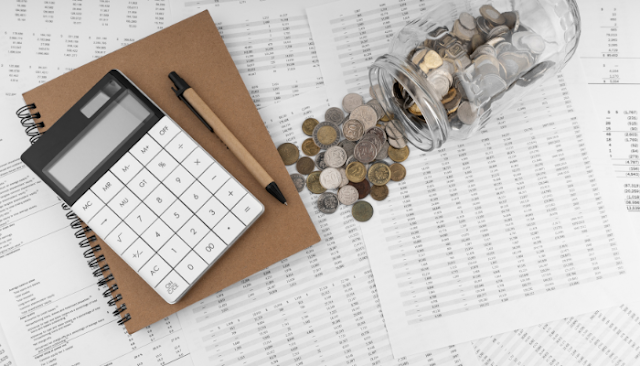In these difficult times, it is important to focus on the basics and avoid unnecessary debt. If you are feeling overwhelmed, I want to help you by sharing four essential things to prioritize in your budget. These four things should always come first before anything else.
1. Keep a Roof Over Your Head
Your home is the most important thing to protect. Whether you rent or own your house, make sure to pay your mortgage or rent on time. Losing your home can put you in a very difficult situation. If you are struggling, talk to your landlord or mortgage company. Sometimes, they can help by adjusting payment plans. But always try to make this your top priority.
2. Put Food on the Table
Food is a basic necessity. You need to eat to stay healthy and have energy to work. If you are struggling to buy groceries, look for ways to cut costs. Buy in bulk, use coupons, and shop at discount stores. Plan your meals to avoid wasting food. If needed, check for local food banks or community programs that can provide temporary help.
3. Pay Your Utility Bills
Electricity, water, and gas are important for daily living. Make sure to pay these bills on time to keep your home running. Some utility companies offer assistance programs if you are having trouble paying. Contact them and ask if they have any options for people in financial hardship.
4. Pay for Your Car or Transportation
If you rely on a car to get to work, it is important to keep up with your car payments and insurance. Without transportation, it may be difficult to earn money. If you use public transportation, make sure you have enough budgeted for your daily commute. If your car payment is too high, consider trading it in for a cheaper vehicle.
Avoid Unnecessary Debt
Right now, is not a good time to take on new debt. Many people are tempted to use credit cards or take out loans to cover their expenses, but this can make things worse in the long run. High-interest debt can trap you in a cycle where you keep paying but never get out. Here are some things to avoid:
1. Do Not Rely on Credit Cards
Credit cards can be helpful in emergencies but using them for everyday expenses can lead to big problems. The interest rates on credit cards are very high, and if you only make the minimum payment, you could end up paying much more than what you originally spent. Try to use cash or a debit card instead.
2. Stay Away from Payday Loans
Payday loans are one of the worst types of debt. They have extremely high-interest rates and can trap you in a never-ending cycle of borrowing. I have seen many people struggle to pay these loans back, and it only makes their financial situation worse. If you are considering a payday loan, look for other options first, like borrowing from a friend or family member or asking for help from a financial counselor.
3. Do Not Take Out New Loans Unless Absolutely Necessary
If you are already in debt, adding more debt will not help. Think carefully before taking out any new loans. Ask yourself if it is something you truly need or if you can find another way to solve the problem.
How to Start Getting Out of Debt
If you already have debt, it is important to create a plan to pay it off. Here are some steps to help you get started:
1. Make a Budget
A budget helps you see where your money is going. Write down your income and all your expenses. Look for areas where you can cut costs. The goal is to make sure you are spending less than you earn.
2. Pay Off the Most Expensive Debt First
If you have multiple debts, focus on paying off the ones with the highest interest rates first. These are usually credit cards and payday loans. Pay the minimum on all your debts but put any extra money toward the most expensive one. Once it is paid off, move to the next one.
3. Avoid Unnecessary Spending
Now is not the time to buy things you do not need. Cut back on entertainment, eating out, and other non-essential expenses. Save money wherever you can so you can put it toward your important bills and debt payments.
4. Look for Ways to Increase Your Income
If your current income is not enough, try to find ways to earn extra money. Look for part-time work, freelancing opportunities, or side jobs that fit your skills. Even small amounts of extra income can help you pay off debt faster.
Final Thoughts
Managing money during tough economic times can be stressful, but it is possible to take control of your finances. Focus on the four most important expenses: housing, food, utilities, and transportation. Avoid taking on new debt, especially high-interest loans. If you already have debt, create a plan to pay it off and stick to a budget.
Most importantly, remember that financial struggles do not last forever. With careful planning, discipline, and smart money management, you can improve your situation and work toward a debt-free future. Stay strong and keep moving forward!






.png)






.png)
.png)
.png)

No comments:
Post a Comment
Share Your Story & Be Featured on My Blog! I love connecting with my readers and hearing your thoughts. If my blog has inspired you, helped you, or made a difference in your life, I’d love to hear from you!
👉 Leave a comment below – Share your thoughts, feedback, or favorite takeaways. Your words encourage me and help others too!
👉 Submit your testimony – Have a personal story or experience related to faith, pet wellness, or anything I write about? Send it to me!
💖 Be featured on my blog – I may feature your testimony or comment in a future post to inspire others!
Let’s build a community of encouragement and learning together. Can’t wait to hear from you!